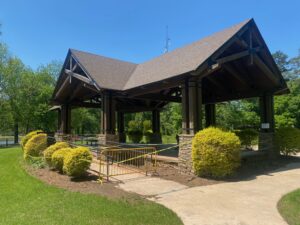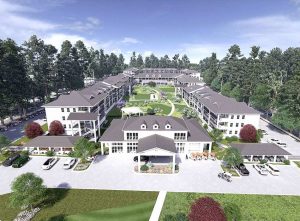A cutting-edge initiative to improve cellular signals in Peachtree City will involve the use of streetlights instead of celltowers. NextG Networks wants to add antennas and small control boxes to existing city streetlights as a low-profile way to cover cellphone deadspots in certain areas for certain carriers.
The proposal will be considered by the Peachtree City Council Thursday night, and an upshot that since NextG will be using city right of way and property for the project, the city will get a 3 percent cut of NextG’s revenue for the service.
The city is negotiating other details, such as the maximum height allowed, as part of a franchise agreement since public right of way is necessary for the project. Among those details would be language to limit the new poles’ height “in conjunction with the surrounding streetscape,” according to a memo from Community Development Director David Rast.
The company wants to use approximately six light poles in the Kedron Hills/Georgian Park area, with the possibility of erecting new poles to create the network, Rast wrote.
The antennas would be between two and four feet in length. Any new poles installed by the company would be required to be of the same style of other utility poles in the area, according to the memo.
The technology could prove to be extremely helpful in providing cellular service to areas where it is difficult or impossible to locate a new cellular tower, Rast said in the memo.
“Ultimately, a 40-foot streetlight pole with a four-foot antenna is far less intrusive, even if on a residential street, than a monopole or lattice celltower that exceeds 100 or 150 feet in height, and will help to provide the needed wireless coverage in a far more visually appealing manner,” Rast said in the memo.
According to NextG’s website, the company is already up and running in downtown Atlanta and beyond with the same service. Up to two carriers can be located on one pole, Rast indicated.
The plans are surely to be welcomed by residents who have opposed recent overtures by several cellular companies who want to build new antennas in residential areas of the city to provide better service. The city recently adopted a new ordinance that would allow celltower to be located on land zoned for industrial, commercial or office use, with the latter two being new additions designed to accommodate the industry’s wishes due to spots of poor or no signals in the city which vary from carrier to carrier.
That new ordinance also included language that allows for celltowers to be built at city-owned recreation areas, although that procedure was also allowed under the previous ordinance.










Leave a Comment
You must be logged in to post a comment.